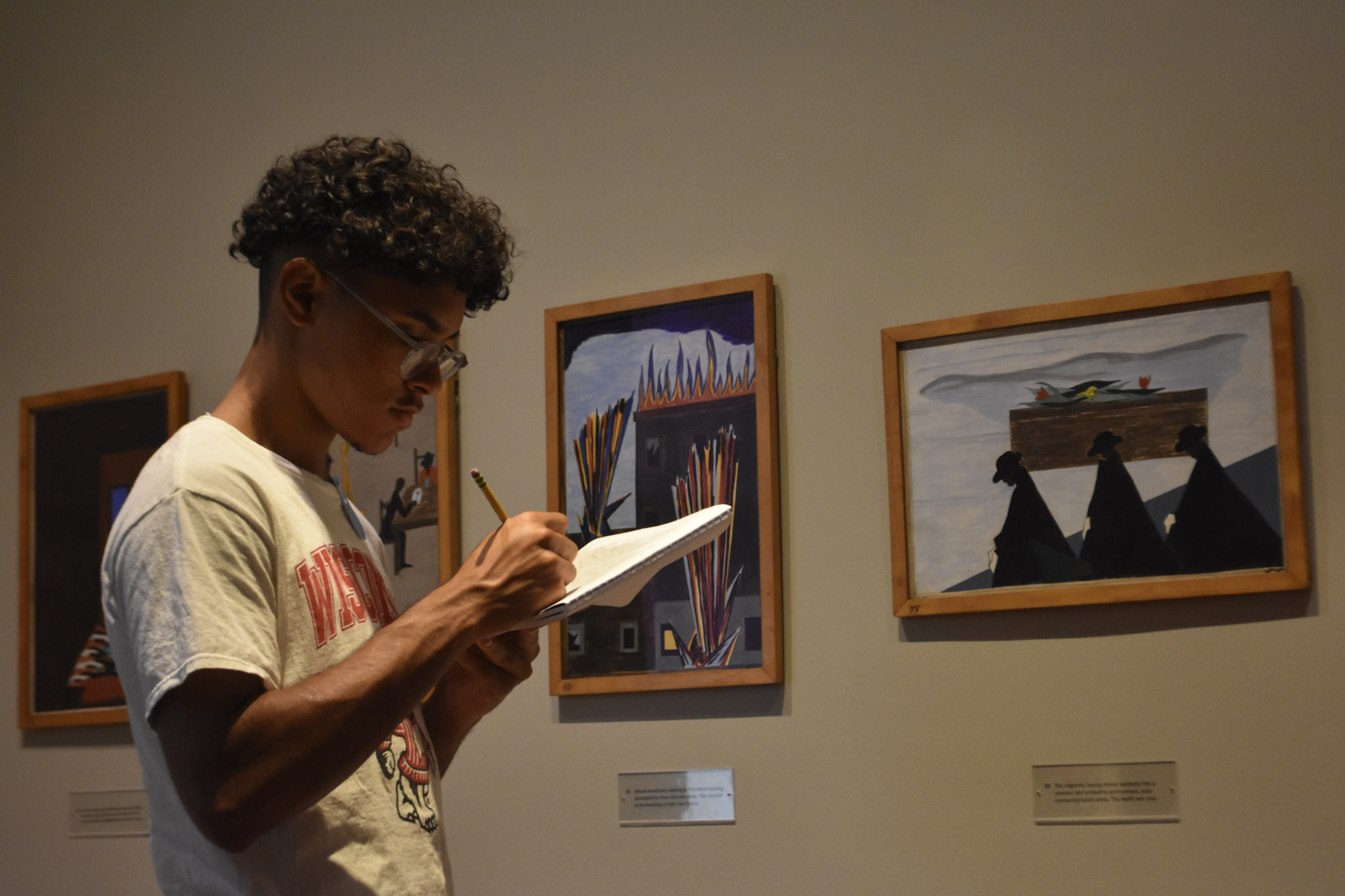Ethics & Leadership
The Ethics and Leadership (E&L) course is at the heart of SEGL’s mission. It is the lens through which students view their other academic courses, their residential life, their social life, their collaborations with area institutions and leaders, and their future.
The course has two principal goals
- To introduce students to ethical, critical thinking, using current national and international events and issues as case studies.
- To develop students’ leadership skills, including public speaking, debate, constructive activism, and an understanding of group dynamics.
The course does not attempt to advocate a particular set of values (in fact, it encourages students to develop their own ethical Credo) but does reflect the School’s belief that thinking seriously about issues of right and wrong is imperative.
The course is incorporated into the School’s schedule, allowing students to make information-gathering site visits; to collaborate with local leaders and institutions; to work with the local community on service initiatives; and to pursue their Capstone Projects. Students frequently work together in small groups; some of the projects for this course also count as grades in other classes.
Capstone Projects

SEGL’s three Capstone Projects represent the culminating work of the semester and provide a bridge between a student’s work at the school and at home.
1 - Collaborative Policy Document
The Collaborative Policy Document brings together the research, critical thinking, and interpersonal skills learned from interdisciplinary case studies presented in the Ethics and Leadership course. During the second month of the term, the student body selects one urgent international challenge, investigates that challenge, and drafts a collaborative written document that proposes a practical solution to the selected challenge. The Ethics and Leadership course will provide a forum for discussion and consensus on the document’s recommendations. The Collaborative Policy Document is published and shared with leading academic institutions, media sources, and political officials; students will lobby these leaders (engaging academics in debate, soliciting media coverage, and lobbying political players) to implement their recommendations in the weeks following the document’s publication. Example Collaborative Policy Documents include:
- The International Human Trafficking of Syrian Refugees (Spring 2019)
- The Rohingya Crisis in Myanmar (Spring 2018)
- Releasing the Press: Censorship in Eritrea (Fall 2016)
2 - The Ethical Credo
The Ethical Credo brings together the ethical reasoning and public speaking skills students learn over the course of the term. Each student presents their Credo to the entire school community at the end of the semester. The challenge of the Credo project is to answer the following two questions:
- “Given all that you have learned as a result of this semester, where do you stand on the questions of ethics and leadership that are most important to you?”
- “Given your answer to the above, how are you going to live your life?”
3 - The Social Venture Project
The Social Venture Project (SVP) brings together a student’s academic studies and developing leadership capabilities. It also represents the first major opportunity to fulfill the second part of a student’s Credo; that is:
- “Given my ethical views and developing leadership skills, how am I going to live my life?”
Chosen with the help of a student’s advisor, peers, and teachers, the Social Venture Project allows a student to identify and confront a challenge in the local, national, or global community. In order to do this, a student might choose service, activism, or social entrepreneurship; no matter the path, the SVP ensures that students will reach out to real people affected by the issues about which the student feels passionately.
Work on the SVP will begin while enrolled at SEGL and is designed to continue when the student returns home. SEGL partners with local and international social entrepreneurs to assist in this process and provides opportunities for students to apply for grants.
Examples of E&L Case Studies:
- Methods of Ethical Inquiry
- Immigration
- Gun Control
- American Strategy in Afghanistan
- Congressional Ethics
- Climate Change: Domestic and International Policy
- Healthcare Reform and the Politics of Change
- Iran’s Changing Role in the Middle East
- The Israeli-Palestinian Conflict
- The Ethics of School Choice
- Leadership in Times of Crisis: The Rwandan Genocide
- Media Literacy